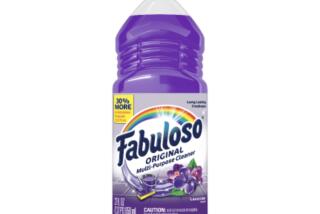A Tough Corporate Decision
- Share via
Faced for the second time in six years with evidence that a number of its Tylenol capsules were contaminated by cyanide poison, Johnson & Johnson has made the difficult decision to stop producing the popular nonprescription pain reliever. In a program that could cost it $150 million, the company has invited consumers to exchange their Tylenol capsules for Tylenol caplets, a one-piece coated pill, or for a cash refund. This response to what for now seems to be an inexplicable problem is a commendable example of corporate responsibility.
Other makers of over-the-counter capsules have opted to continue selling their products. Their decisions are reasonable and should not be criticized. Since 1982, when seven people in the Chicago area died from poisoned capsules, the nonprescription drug industry has put considerable effort into making its packaged goods tamper-proof. While complete safety can never be guaranteed, this effort seemed until a few days ago to have met with full success. By means that have yet to be identified, this safety screen was penetrated in the case of a few Tylenol capsules.
Johnson & Johnson deserves credit for confronting its problem forthrightly, in marked contrast to a number of other corporations which recently have tried to evade their responsibilities for products that were defective or otherwise dangerous to consumers. Companies succeed when there is public confidence in their products. Johnson & Johnson has acted to restore whatever confidence may have been lost because of an act of lunacy that was beyond its control.
More to Read
Inside the business of entertainment
The Wide Shot brings you news, analysis and insights on everything from streaming wars to production — and what it all means for the future.
You may occasionally receive promotional content from the Los Angeles Times.










